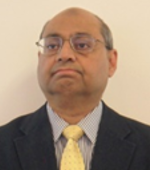

Symposium on Emerging Technologies and Challenges for Effective Teaching and Learning -Skills & Themes in Higher Education
Co-organizers/Speakers:
Prof. Dr. M. Yasin Akhtar Raja,Phys and Optical Science & Engineering, UNC Charlotte, NC, USA
Prof. Dr. M. Asghar Hashmi,
Controller Exams, National Skills University, Islamabad
Prof. Dr. Robina Farooq
Dir. University Industry Linkage Section, COMSATS Lahore, Lahore, Pakistan
Summary:
Uncertainties like COVID-19 pandemic, severe threat of global warming as well as unfortunate international conflicts have challenged educational, industrial, and various life sectors across the globe. The entrepreneurial activities, agriculture, trade and educational systems around the world are prone to and being severely impacted by the uncertainties casting shadows on the future of global education, collaborations as well as global entrepreneurship. These scenarios have prompted the educational institutions and the stakeholders to leverage unconventional and alternative modes of education delivery and entrepreneurial paradigms. That heavily relies on and is based on the available information and communication technologies. These scenarios have resulted in various constructive and positive changes and alternatives in the educational and entrepreneurial landscape. Nonetheless, it also has raised concerns on ensuring quality of remote education provision, existence of scrawny educational infrastructure, and inequality in accessing the internet and compatible resources. Of course, that applies to other walks of life and entrepreneurship included.Now, under normal as well as various sudden and unforeseen situations all over the globe, the role of digital technologies is multilevel and profound. In the unprecedented conditions, the educational institutions, public service- and healthcare-providers all have dependence on the high-speed and high-reliability connectivity; enabled by the global communications networks and information services available both in public- and private-sectors. A paradigm shift is inevitable from the traditional legacy models and operations to a rapid response and adaptable approach with a high-level security both in physical and cyber realms.
While the high-fidelity and high-speed network services are the backbone, but without the compatible contents-development, management and suitable delivery, the entire-system would not function to accomplish the goals and objectives. Therefore, it comes to mutual support and cooperation among the institutions of higher learning & training and the industrial sectors at all levels. This could fairly be accomplished with the state-supported resources but the real-success hinges on the participation of private-sector, philanthropist non-governmental contributors and achievers.
For services and developments, sharing and adoption, a dedicated- and committed task-force is needed to connect, service, and maintain the standards, reliability and credibility. Using the Symposium Platform, the participants having wide-ranging experiences will share their expertise and wisdom to propose and develop recommendations for the transformation of academic knowledge into viable products, services and production processes for continuity and sustainability with a global impact of academia and entrepreneurship.
Major Objectives:
There is a dire need to create awareness and incentivize the young minds to step forward and blend Engineering and Business Education rather than just conventional degree-programs. The new paradigm will have a potential for paving a way towards self-sufficiency, reliance, and employability; all contributing towards a positivity over the globe.And further, in turn it can fetch entrepreneurship rather than to be vagrant here and there with degree and no desirable jobs in hand. The foremost aims are the mitigation of the gaps between the formal education and the workplace/job-market needs by developing the skills and imparting refined training to the graduates. The following bullet points simply guide the thought process and sky is the limit!
• To ensure educational continuity and proposed strategies to reshape, evolve, and transform the higher education in the wake of pandemics, global natural and man-made disasters and conflicts.
• To fill the existing gaps between the excellence, access and prevailing university education paradigms.
• Focusing on training of the technical and support staff at the institutions in order to maintain access and work-quality in the university education delivery and assessment methods.
• Preparing the University graduates for National- and International job markets with befitting skillsets and ensuring entrepreneurial endeavors.
• Capitalizing on the role of technology such as ICT, Cyber-security, ML and AI to undertake new measures for benchmarking the quality of education and tackling the current digital divide. Eventually, sharing the experiences with the secondary to elementary education system as trickle-down approach.
• Developing frameworks for coordination and cooperation to initiate effective and operative partnerships between private and private sectors.
Paper Submission:
Papers that present original work, validated by experimentation, simulation, or analysis, testbeds, field-trials, or real deployments are welcome for the Education Forum and the iiScience Conference’s Thematic area. All papers should be submitted via EDAS to the main iiScience conference by visiting this linkPanel Discussions:
Experts from Academia; Industry Sector; and State & City FunctionariesRegistration:
Visit iiScience registration at Register.Speakers:

Dr. Iqbal Chaudhry
Science & Technology Education Project (STEP), Greensboro, North Carolina, USA
Title: What If We All Could be Innovative!

Dr. Ahmed S. Khan
Fulbright Specialist Scholar,
World Learning Inc.,
U.S. Dept. of State’s Bureau of Educational & Cultural Affairs (ECA)
Title: “Emerging Technologies and Challenges for Effective Teaching and Learning”





 conference program
conference program
